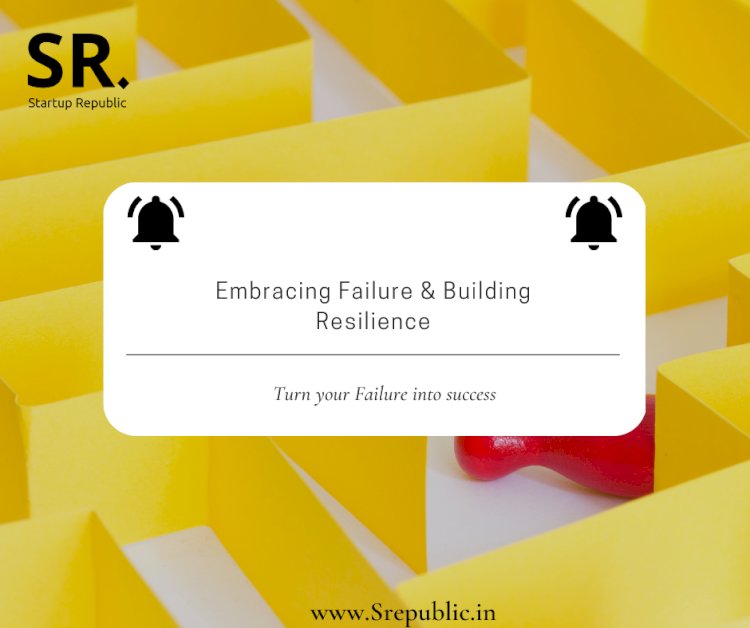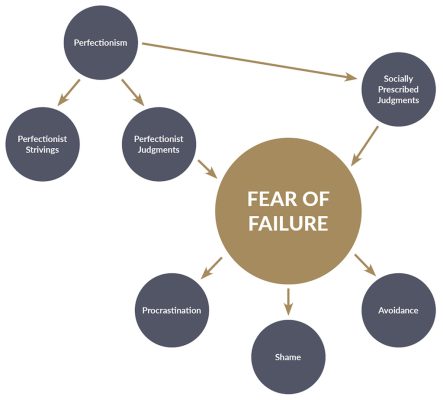
Building a Strong Support System for Your Startup: Your Secret Weapon for Sustainable Success
Starting a business is often portrayed as a glamorous, solo adventure. You see the visionary founder, the late nights, the breakthrough idea. While passion and hard work are undeniably crucial, the reality is that the entrepreneurial journey can be incredibly demanding, isolating, and fraught with challenges. This is precisely why building a strong support system for your startup isn’t just a nice-to-have; it’s a vital component for your well-being, resilience, and ultimately, your business’s success.
Think of your support system as your personal and professional safety net, your sounding board, and your cheerleading squad all rolled into one. It’s the network of people who provide guidance, emotional strength, practical advice, and a much-needed sense of community when you feel like you’re navigating uncharted waters alone.
In this comprehensive guide, we’ll explore why a robust support system is non-negotiable for founders, who should be part of it, and actionable steps to build and nurture these invaluable relationships.
Why You Absolutely Need a Strong Support System for Your Startup
The path of a startup founder is unique. It’s often characterized by long hours, financial uncertainty, constant decision-making, and immense pressure. Without the right support, these factors can quickly lead to burnout, poor decisions, and even the demise of your venture. Here’s why a strong support system is your secret weapon:
1. Combating Isolation and Loneliness
Founders often feel like they’re on an island. You might be the only one in your immediate circle facing the specific challenges of scaling a business, raising capital, or managing a team.
- Problem Solved: A support system provides people who understand your unique struggles, offering empathy and a sense of belonging. Knowing you’re not alone can be incredibly powerful.
2. Gaining Fresh Perspectives and Expert Advice
When you’re deeply immersed in your business, it’s easy to develop tunnel vision. You might miss opportunities, overlook potential pitfalls, or stick to strategies that aren’t working.
- Problem Solved: Mentors, advisors, and even peer entrepreneurs can offer objective viewpoints, draw on their own experiences, and help you think outside the box. They can identify blind spots you never knew you had.
3. Reducing Stress and Preventing Burnout
The constant pressure of a startup can take a severe toll on your mental and physical health. Without an outlet or a mechanism for stress relief, burnout is almost inevitable.
- Problem Solved: A support system provides emotional anchors – people you can vent to, celebrate small wins with, or simply be yourself around. This emotional release and validation are crucial for maintaining mental well-being and preventing exhaustion.
4. Accessing Resources, Opportunities, and Networks
Your network is your net worth, especially in the startup world. Connections can open doors to funding, partnerships, talent, and customers.
- Problem Solved: People in your support system often have their own networks and resources they can share. A simple introduction from a trusted advisor can be worth months of cold outreach.
5. Boosting Confidence and Motivation
There will be days (many of them!) when you doubt yourself, your idea, or your ability to keep going. Rejection, setbacks, and failures are part of the journey.
- Problem Solved: Your support system can be your biggest cheerleaders. They can remind you of your strengths, celebrate your progress, and help you pick yourself up after a fall. This encouragement is vital for maintaining momentum and belief in your vision.
Who Should Be Part of Your Startup Support System? (The Dream Team)
A strong support system is diverse, encompassing various roles that fulfill different needs. It’s not about having hundreds of contacts, but rather a core group of meaningful relationships. Here are the key players you should consider:
1. Mentors & Advisors: The Wise Guides
These are experienced individuals who have "been there, done that." They’ve likely navigated similar challenges and can offer invaluable insights.
- Who they are: Successful entrepreneurs, industry veterans, former executives, or specialists in areas like finance, marketing, or legal.
- What they offer: Strategic advice, industry knowledge, specific guidance on complex issues, introductions to their network, and a sounding board for major decisions.
- Why you need them: They help you avoid common mistakes, accelerate your learning curve, and provide a high-level perspective.
2. Peer Entrepreneurs: Your Fellow Travelers
These are other founders who are currently in the trenches, perhaps even facing similar challenges as you.
- Who they are: Other startup founders (not necessarily in your direct competitive space), members of startup accelerators, or participants in entrepreneur groups.
- What they offer: Empathy, shared experiences, practical tips from their own recent struggles, collaborative problem-solving, and a sense of camaraderie.
- Why you need them: They understand the daily grind and emotional rollercoaster like no one else. They can commiserate, celebrate, and brainstorm with genuine understanding.
3. Family & Friends: The Emotional Anchors
These are the people who love and care about you, regardless of your startup’s performance.
- Who they are: Spouses, partners, parents, siblings, or close friends.
- What they offer: Unconditional emotional support, a safe space to vent, a reminder of who you are outside of your business, and a much-needed break from startup talk.
- Why you need them: They provide stability and a non-judgmental environment. They can help you maintain perspective and remind you that your identity isn’t solely tied to your business.
4. Professional Service Providers: The Specialists
These are experts you hire or consult for specific, critical functions.
- Who they are: Accountants, lawyers, HR consultants, marketing agencies, specialized recruiters, or even therapists/coaches.
- What they offer: Expert knowledge in their field, ensuring compliance, saving you time, mitigating risks, and helping you scale efficiently.
- Why you need them: They handle the complex areas where you lack expertise, allowing you to focus on your core business. They protect your assets and help you navigate regulatory landscapes.
5. Investors: The Strategic Partners
Beyond just capital, the right investors can be powerful allies.
- Who they are: Angel investors, venture capitalists, or even strategic corporate investors.
- What they offer: Not just funding, but also strategic guidance, industry connections, validation, and accountability.
- Why you need them: They have a vested interest in your success and often bring significant experience and networks to the table.
6. Online Communities & Groups: The Accessible Network
In today’s digital age, many valuable connections can be forged online.
- Who they are: Members of forums (e.g., Indie Hackers, Reddit entrepreneur subreddits), LinkedIn groups, Slack communities, or specific niche platforms.
- What they offer: Quick answers to specific questions, diverse opinions, access to a global network, and a sense of belonging without geographical limitations.
- Why you need them: They offer flexibility and accessibility, especially for those in remote areas or with limited time for in-person events.
How to Build Your Startup Support System: Actionable Steps
Building a strong support system isn’t a passive activity; it requires intentional effort. Here’s how to start:
1. Self-Assess Your Needs First
Before reaching out, understand what kind of support you actually need.
- Ask yourself:
- What are my biggest challenges right now (e.g., funding, marketing, team management, emotional stress)?
- What skills or knowledge am I lacking?
- Who do I need to talk to when I’m feeling overwhelmed?
- What kind of advice would be most helpful?
- Action: Make a list of your top 3-5 support needs. This will guide your outreach.
2. Be Proactive in Your Networking
Support systems rarely just appear; you have to seek them out.
- Attend Industry Events & Meetups: Look for local startup events, industry conferences, or meetups. Be genuinely curious and ready to listen.
- Leverage Online Platforms: Use LinkedIn to connect with people in your industry or those who have experience you admire. Join relevant Facebook groups, Slack channels, or online forums.
- Ask for Introductions: Reach out to your existing network (friends, former colleagues, professors) and explain what kind of support you’re looking for. Ask if they know anyone who might be a good fit.
- Join Accelerators or Incubators: These programs are designed to provide structure, mentorship, and a built-in peer network.
3. Nurture Relationships Authentically
Building a support system is about genuine connection, not just collecting business cards.
- Offer Value First: Before asking for help, think about how you can help others. Share useful articles, make introductions, or offer your expertise where appropriate.
- Be Specific in Your Requests: When you do ask for help, be clear and concise. Instead of "Can I pick your brain?", try "I’m struggling with X; would you be open to a 15-minute call to discuss your experience with Y?"
- Listen More Than You Talk: Show genuine interest in others’ experiences and advice.
- Follow Up Thoughtfully: Send a thank-you note after a meeting. Provide updates on how their advice helped you. This shows respect and appreciation.
4. Define Roles and Expectations
Not everyone in your support system will serve the same purpose, and that’s okay.
- Clarify: It’s helpful (though not always explicitly stated) to understand if someone is a mentor, a peer, or simply a friend. This helps manage expectations for both sides.
- Respect Time: Understand that mentors and advisors are often busy. Be mindful of their time and prepare for your interactions.
5. Give Back to Your Community
A healthy support system is a two-way street.
- Share Your Learnings: As you gain experience, share your insights with other aspiring founders.
- Offer Your Help: If a peer is struggling with something you’ve overcome, offer your advice or connections.
- Be a Good Listener: Sometimes, the best support you can offer is simply to listen empathetically to someone else’s challenges.
- Refer Business: If you can, refer business or opportunities to those in your network.
6. Be Open to Feedback (Even When It’s Tough)
The most valuable support often comes in the form of honest, constructive criticism.
- Embrace Disagreement: Don’t just seek out people who will agree with you. Seek out those who will challenge your assumptions and offer different perspectives.
- Practice Active Listening: Try to understand the intent behind the feedback, even if it feels critical. It’s usually meant to help you grow.
Maintaining and Strengthening Your Support System
Building your system is the first step; keeping it strong requires ongoing effort.
1. Regular Check-ins
Don’t wait until you’re in a crisis to connect.
- Schedule Time: Set recurring reminders to reach out to key individuals in your system. A quick text, email, or coffee chat can keep the relationship alive.
- Share Updates: Even small wins or learnings can be good reasons to touch base.
2. Show Appreciation
A little gratitude goes a long way.
- Say Thank You: Verbally, in writing, or with a small thoughtful gesture.
- Acknowledge Impact: Let people know how their advice or support made a difference.
3. Adapt Your System as You Grow
Your needs will change as your startup evolves.
- Re-evaluate: Periodically assess if your current support system still meets your most pressing needs.
- Add New Members: As you enter new phases (e.g., fundraising, scaling, international expansion), you might need new types of expertise or connections.
4. Don’t Be Afraid to Prune
Not every relationship will last forever, and that’s okay.
- Focus on Quality: Invest your energy in the relationships that are most beneficial and reciprocal.
- Graceful Exits: If a relationship no longer serves its purpose or becomes draining, it’s okay to let it fade naturally or gently distance yourself.
Conclusion: Your Support System – The Foundation of Your Startup’s Future
Building a strong support system for your startup is not a luxury; it’s a strategic imperative. It’s about more than just networking; it’s about cultivating genuine relationships that provide a safety net, a sounding board, and a source of inspiration.
By intentionally seeking out mentors, connecting with peers, leaning on family and friends, and leveraging professional expertise, you equip yourself with the tools to navigate the unpredictable waters of entrepreneurship. Remember, no successful founder truly makes it alone. Your support system will be your bedrock, helping you to stay resilient, make smarter decisions, and ultimately, transform your startup vision into a thriving reality.
Start building your dream team today – your future self (and your startup) will thank you for it.



Post Comment